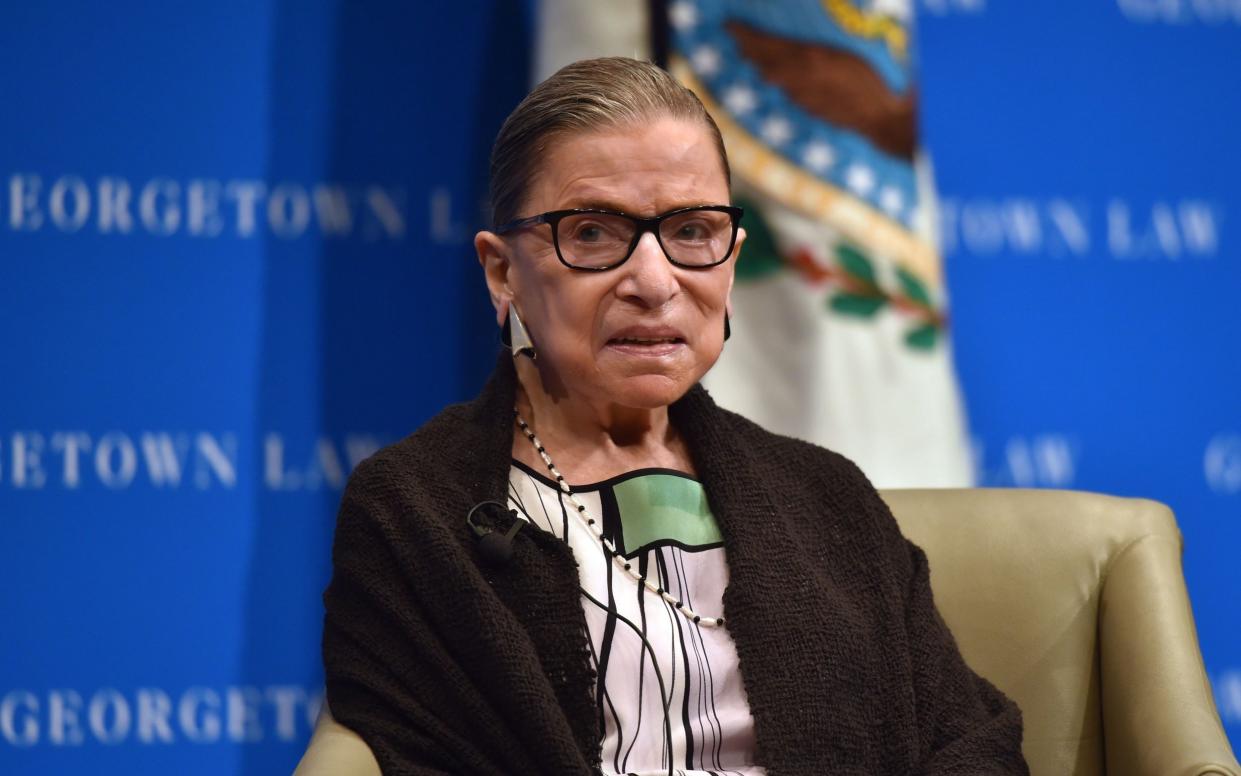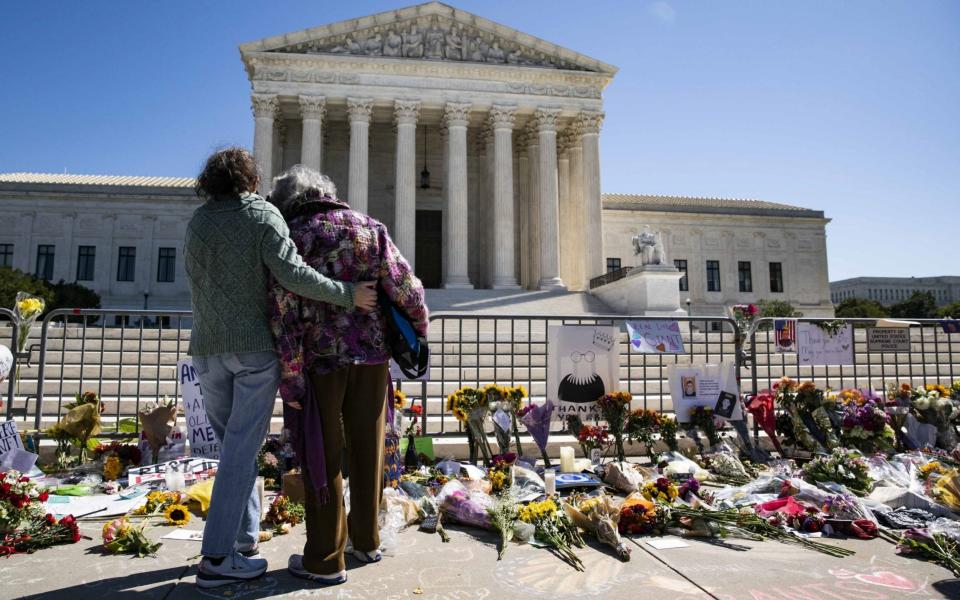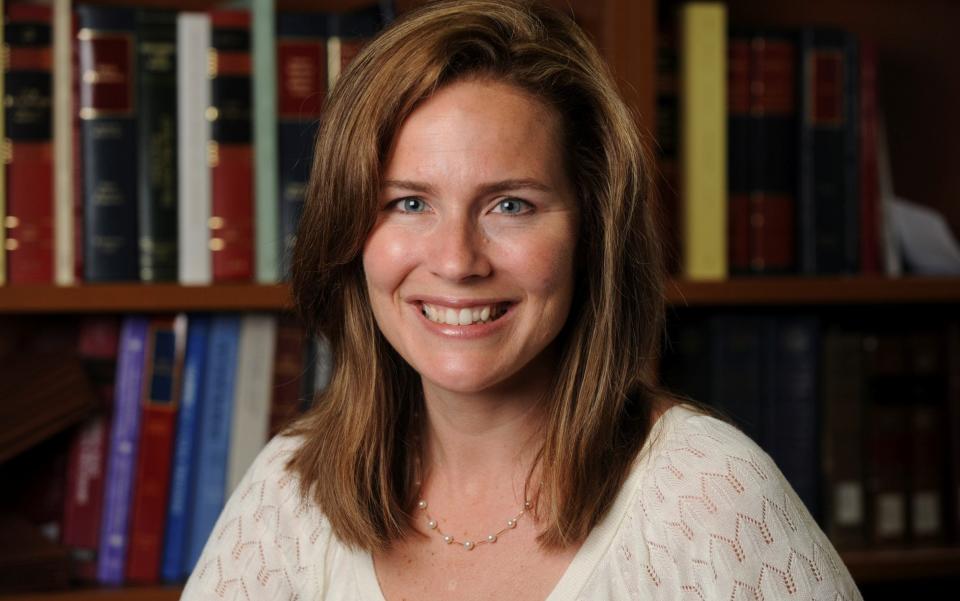What Ruth Bader Ginsburg's death means for abortion rights in America

They were chalk and cheese: one a tiny, frail Jewish grandmother from New York who became a feminist heroine in her 80s; the other a 48-year-old devout, pro-life Catholic mother-of-seven who enjoys parties and working out.
And now, if President Donald Trump has his way, the first, Ruth Bader Ginsburg – who died last week at the age of 86 – will be replaced on the US Supreme Court by the second, Amy Coney Barret. It’s a move which critics say could set the cause of women’s rights back a generation.
It is hard to overstate the impact of Bader Ginsburg – “the Notorious RBG” as she was known to millions of fans – on American cultural life in recent years.

Instantly recognisable with her oversized glasses, slicked back black hair and delicate lace collars, little girls dressed up as her on Halloween and her image was featured on a million coffee cups.
But her radical rulings, often in the form of dissents from the judgments of her more conservative Supreme Court peers, on laws relating to access to abortion, contraception and health care, voting rights and equal pay, meant she was loathed by the Right.
Her death 46 days before what is perhaps the most important election in US history adds another element to an already deeply bitter and divisive contest.
President Trump and his Republican party are desperate to rush through the process of appointing a new justice who shares their worldview before the election; the Democrats are equally determined to stop them.
As one of Trump’s leading critics, and his polar opposite in every way, RBG was a particular bugbear for the President.
Such was his enmity that when he last appointed a Supreme Court judge (Brett Kavanaugh, whose confirmation hearings became notorious when a former schoolmate came forward to accuse him of sexually assaulting her, something he denied), Mr Trump is reported to have told aides he was “saving” Justice Barrett “for Ginsburg”.
The President has already declared that his nominee will be a woman, and Barrett is now the red-hot favourite for the role.
An “originalist” who believes in the literal interpretation of the US constitution as it was framed by its founders, Justice Barrett would become the youngest judge on the Court should her nomination be successful, meaning she would likely wield influence over US life for decades to come.
That has raised particular concerns about the impact on women’s rights, and abortion in particular. In recent years, she has voted in favour of court rulings that have had the effect of restricting access to abortion.
In 2017, during Senate hearings to confirm her appointment by Trump to the 7th Court of Appeals, Barrett was asked repeatedly about whether her faith would conflict with her ability to apply the law.
When one questioner, Democrat Senator Dianne Feinstein, said to her "the dogma lives loudly within you”, the words proved galvanising for conservative Catholics, with t-shirts and bumper stickers soon emblazoned with the words.
While she insisted her religion was no impediment to her application of justice, it is clear Barrett’s faith runs deep. She is a member of People of Praise, a close-knit grouping made up largely of Catholics which includes Pentecostal practices such as talking in tongues. Members are encouraged to see men as the head of the household, and adults are appointed guides known as “head” if they are male, and, until recently, “handmaidens” for females, a term said to be the inspiration for Margaret Atwood’s The Handmaid’s Tale.

Born in New Orleans, the oldest of seven children, Barrett studied law at Notre Dame university, where she met her future husband, Jesse, now an attorney in private practice in their home town of South Bend, Indiana. The couple adopted two children from Haiti, and have five biological offspring, including a little boy with Down’s Syndrome.
Like RBG, she graduated top of her class, and she went on to clerk for the late Supreme Court justice, Antonin Scalia, whose famous – or infamous – belief in the literal interpretation of the constitution she shared.
Like Scalia, she also favours the expansion of gun rights and has supported Trump’s anti-immigration measures, including denying residency to immigrants who seek to rely on welfare.
But it is Barrett’s views on abortion which are of most concern to liberals and even some Republicans, who fear that if he nominates her Trump could lose the votes of women at the election in November. Many believe that if appointed she would join fellow conservatives on the Court in overturning Roe v Wade, the ruling which granted American women the right to an abortion.
The President has vowed to name his pick to succeed RBG by the end of the week – if he chooses Amy Coney Barrett, she could well have as profound an impact on the lives of Americans as the woman she would replace.


